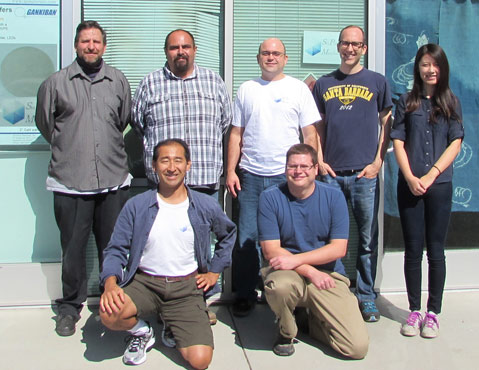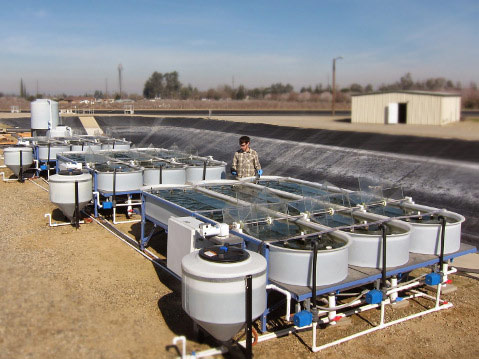Three Companies Receive Clean Energy Awards
They're Changing the World One Photon or Scum Pond at a Time

Three Central Coast companies are the recipients of the newest series of United States Department of Energy grants awarded to small businesses. Awarded in late June at $1 million each, the grants for SixPoint Materials, Inc., MicroBio Engineering Inc., and Freedom Photonics, LLC encourage further clean energy research and technology development.
Buellton-based company SixPoint Materials has been making inroads in energy efficiency technology since its founding in 2006. Tadao Hashimoto, the company’s CEO and CTO and a PhD graduate of UCSB’s material sciences department, leads his modest team of 10 in the production of gallium nitride (GaN) wafers — a small but crucial technology that gives life to power transistors, laser diodes, light emitting diodes, and other GaN-based devices. The switch from the traditional silicon-based material to gallium nitride is “crucial for the next step in energy efficiency,” according to Hashimoto, as gallium nitride is “much more efficient and compact.” The latest DOE grant will fund research on improvements in the cutting and polishing process of each individual wafer, which Hashimoto equated to the meticulous nature of diamond production.

Freedom Photonics, whose research and production facilities are located in Santa Barbara, also prides itself on the business of energy efficiency — through computer communication. Founded in 2005 by electrical engineering PhD’s Leif A. Johansson and Milan L. Mashanovitch, the team of 25 creates photonic integrated circuits, the same technology that allow servers for sites like Google, Facebook, and Amazon to communicate with each other. “Overheating is always an issue when working with so many servers,” said Mashanovitch of the airplane-hanger-sized facilities that house the Internet’s largest. The team plans to use its $1 million grant to fund research on solving such overheating issues and also developing circuits that emit less energy. Through its research, the company continues to pave inroads for hardware used by the Department of Defense, NASA, and private companies touting fiber optic “fencing.”
Unlike its fellow Central Coast recipients, MicroBio Engineering is changing the status quo for energy resources through a more natural medium. Based in San Luis Obispo, the consulting and engineering firm is altering the way the world sees algae from lagoon scum to a powerful biofuel and catalyst in wastewater reclamation. For the relatively warm climates of California, MicroBio Engineering offers farms and communities a low-cost way to reclaim water. The company’s research and partnerships with small- and large-scale businesses works to reduce California’s looming water scarcity. The patented technology, which involves a series of three differently sized “raceways” with paddle wheels to promote constant water movement and culture development, can also manage both carbon dioxide and nitrogen cycles in marine dead zones, according to the company’s website.
The $1 million grants were awarded by the Department of Energy to businesses across the United States as part of the 2016 Small Business Innovation Research and Small Business Technology Transfer programs.


